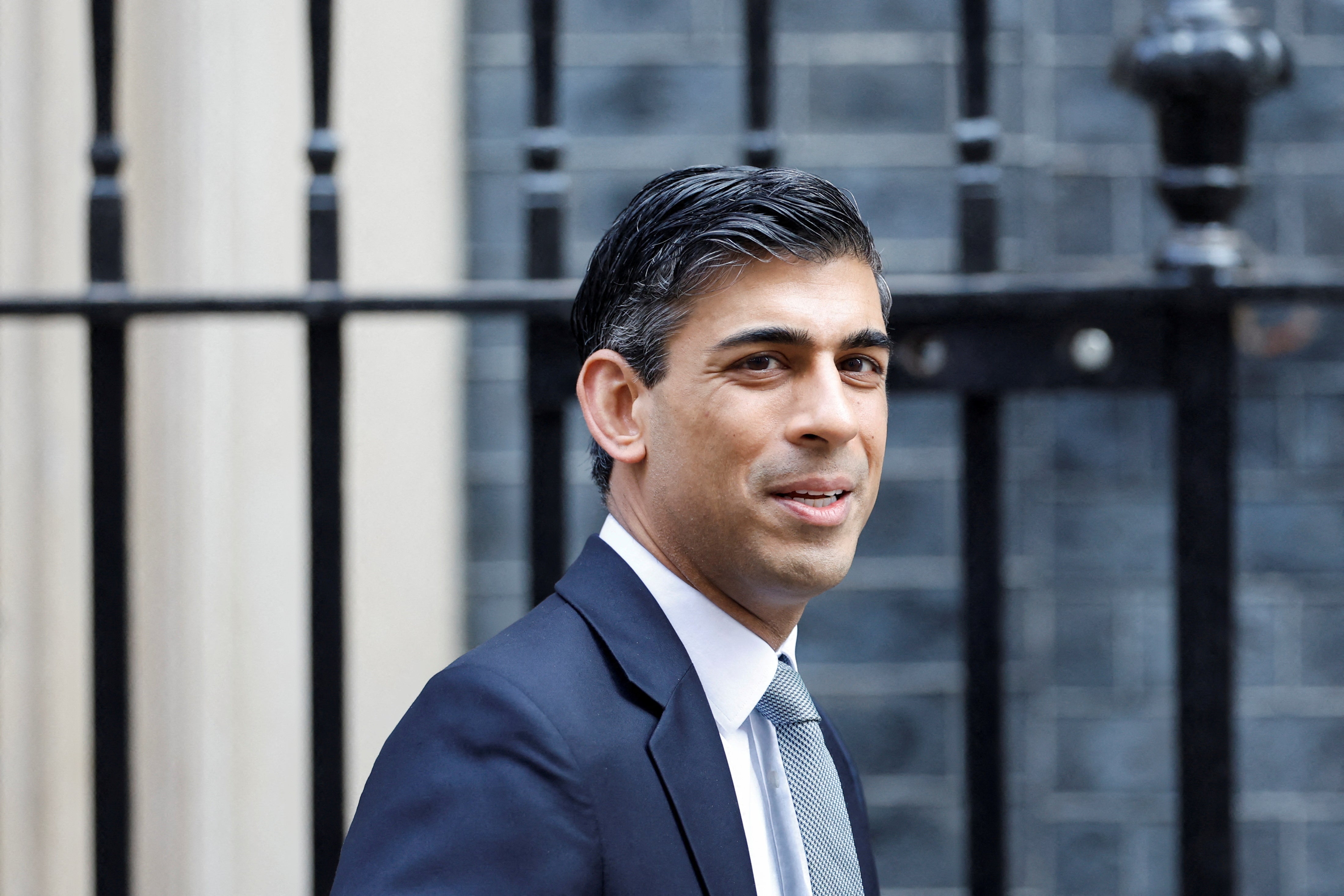Rishi Sunak has referred himself to the independent regulator – but is the damage done?
Turning yourself into an independent regulator is what usually happens when you’re bang to rights and going to be busted anyway, and so you may as well refer yourself before someone else does it for you


It might seem a strange move by Rishi Sunak to refer himself to Lord Geidt, the independent adviser on ministerial conduct. To be frank, turning yourself into an independent regulator is what usually happens when you’re bang to rights, you’re going to be busted anyway, and so you may as well refer yourself before someone else does it for you.
Not that Rishi Sunak or his wife, Akshata Murty, have necessarily done anything wrong; it’s just how these things work, in politics and outside it. But there may be something different going on here.
It’s certainly odd that three of the key interests that have arisen in this story are not mentioned in the Sunak entry in the register of ministers’ interests, including those of spouses and other close family members.
The three very substantial potential conflicts of interests of concern are: Sunak’s status as a beneficiary of an offshore family trust (presumably separate from his personal “blind trust”, itself potentially controversial); Murty’s beneficial ownership of a reported £690m in shares in Infosys, a company which has lobbied UK ministers (directly or otherwise); and Murty’s status as a “non-dom”, given Sunak’s role in framing tax policy.
This is what we find in the last published register, from November 2021 for the chancellor:” 1. Financial interests: Blind trust / blind management arrangement
“5. Charities and non-public organisations: Patron, National Osteoporosis Support Group (Hambleton & Richmondshire); Patron, Leyburn Brass Band; Patron, Wensleydale Wheels; Honorary Member, Rotary Club Richmond; Honorary Member, Rotary Club Northallerton Honorary Member, Rotary Club Northallerton Mowbray
“7. Relevant interests of spouse, partner or close family member: Mr Sunak’s wife owns a venture capital investment company, Catamaran Ventures UK Ltd.”
No one, it’s fair to say, is that bothered about the brass band, but rather the brass neck to omit interests “worth” many millions of pounds.
The briefings coming out of the Treasury suggest that Sunak did tell his permanent secretary about at least some of these. If he did declare all the relevant ones to the civil service, then why don’t they appear in the register?
That is the crucial question, procedurally. All Sunak is required to do under the code is to inform his most senior civil servant. What they do next is up to their judgement and the view of the ethics advisers around the place. We, or Lord Geidt, might well ask if Sunak had any say or opinion on what ought to be published, or who else did. But it does look rather as though the blame, if such there is, will be taken by the civil servants and not the chancellor himself.
Having reported that to Boris Johnson, the Sunak line will be that we can now draw a line under it all. (We assume that Sunak will be able to substantiate his private declarations to the civil service machinery.)
Not so fast, though. There’s also something called the Nolan Principles of Public Life, including “openness”, meaning that: “Information should not be withheld from the public unless there are clear and lawful reasons for so doing.”
Why, in other words, was it thought lawful, clear and ethical that the chancellor’s wife’s substantial financial interests and tax status should not be made public? Or indeed the chancellor’s beneficial interest in an offshore family trust. It’s also worth raising whether his children would be beneficiaries of the trust, being close relatives covered by the Ministerial Code.
To keep up to speed with all the latest opinions and comment, sign up to our free weekly Voices Dispatches newsletter by clicking here
Don’t forget that the code doesn’t just require there to be no actual conflicts of interest but also that ministers should be perceived to have conflicts of interest: “Ministers must ensure that no conflict arises, or could reasonably be perceived to arise, between their public duties and their private interests, financial or otherwise.” On that, Sunak does seem to have failed.
Geidt might well find that the chancellor didn’t show sufficient care about the perceptions of what was going to be on display in the public register, and what was not; and his civil servants should have made sure he was protected. The obligation to openness and the code transcend personal privacy in specific circumstances such as these.
One good way to avoid any unfortunate perceptions is to make sure they are placed in the public domain. Sunak could and should have told his civil servants that he wanted the public to know all of his and his close family’s arrangements from the public register – to avoid that very perception which now seems widespread and so deeply damaging. He appears to have misjudged his best policy.
At least the referral to Geidt allows Sunak and the rest of them to repeat the handy line “we must now wait for Lord Geidt”, in the way we’ve been waiting for Sue Gray and then the Metropolitan Police to finish their work on Partygate.
In the end, though, as with all the other controversies, what matters is the politics and the “optics”, as they say, and they are obviously terrible. A realistic estimate is that Murty’s tax status saved her and the family’s finances (lawfully) some £20m; a million times the £20 a week her husband cut from universal credit and the poorest families. Number crunching like that is the sort of thing finance ministers are supposed to be good at.

Join our commenting forum
Join thought-provoking conversations, follow other Independent readers and see their replies